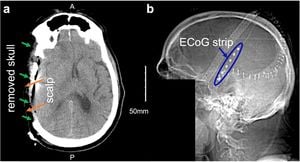A teenager from Sagamihara City is currently facing trial for the murder of his parents, which occurred last year. The case has garnered significant attention as it raises complex questions about youth trauma and culpability.
The tragedy unfolded on February 10, 2024, when the 16-year-old boy allegedly stabbed his father multiple times and later killed his mother by strangulation upon her return home. The trial is being conducted at Yokohama District Court, with presiding Judge Ryosuke Yoshii overseeing the proceedings.
On February 6, 2025, testimonies began with discussions surrounding the psychological state of the accused and the circumstances leading to the heinous acts. A key witness, a former family court investigator, provided insights indicating the boy's upbringing involved abusive dynamics, which could have influenced his criminal behavior.
Describing the impact of experiencing abuse, the former investigator stated, "If proper measures are chosen, it will have considerable effects. Reconstructing the lost childhood and adolescence is necessary." This statement emphasizes the necessity for therapeutic interventions to address the boy's emotional scars and past trauma.
Further, the witness elaborated on the differences between juvenile correction facilities and adult prisons, explaining, "The differences between juvenile medical institutions and prisons are substantial. A juvenile institution offers more intensive rehabilitation opportunities." Such insights shed light on the possible paths forward for the boy, underscoring the importance of rehabilitation rather than mere punishment.
The prosecution is arguing for severe penalties based on the gravity of the crimes, presenting previous instances of theft committed by the boy before the tragic event. These incidents are serving as evidence of his troubled past and delinquent behaviors. "The abuse experiences during childhood significantly influenced the crime," the investigator stressed, highlighting the underlying issues at play.
During the courtroom proceedings, the prosecution pointed out inconsistencies between the boy's statements and the evidence gathered. For example, the boy alleged his mother often drank heavily, but the refrigerator at home contained no alcohol at the time of the incident. This discrepancy raised questions about the reliability of the boy's testimony, leading the prosecution to challenge the credibility of his claims. The witness responded, saying, "I don’t know," when asked about this inconsistency.
The defense has maintained the position of the boy's innocence, urging the court to acknowledge his mental state and the possibility of being influenced by the environment he was raised in. This aspect is particularly poignant, considering the emotional burden the boy faced during his formative years. "I wanted my parents to disappear," was one of the troubling statements made during the questioning, which reflects the turmoil within the boy's mind.
Looking toward the upcoming court dates, there is much speculation about the potential outcomes. The court is scheduled for closing arguments on February 10, offering both sides the opportunity to present their final positions. The gravity of the situation is apparent; the decision will not only impact the boy’s future but may also set benchmarks concerning how cases involving juvenile offenders are handled moving forward.
This trial is emblematic of broader societal issues related to child welfare, parental responsibility, and the criminal justice system's approach to youth offenders. With increasing awareness surrounding mental health and its relevance to criminal behavior, this case could serve as pivotal when it integrates psychological evaluations alongside legal judgments.
While it's clear the boy is facing serious charges, the heart-wrenching societal narrative involves unpacking the reasons behind such drastic actions. The interplay of trauma, family dynamics, and psychological responses demands careful scrutiny, both inside and outside the courtroom.
Regardless of the verdict, the repercussions of this case extend beyond its immediate legal ramifications. It challenges the community to reflect on its role concerning child protection, intervention strategies, and the treatment of young offenders—ensuring they receive the support necessary to heal and possibly rehabilitate.



